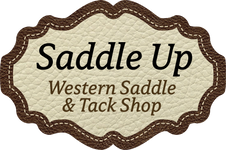What ingredients are in your horse's grain? - Learn what they mean to help make the best feeding choices for your horse
Posted by Lynnsy Johnson - Saddle Up on Oct 17th 2019
When grocery shopping, we always check the food labels to see what we are buying. We care about the ingredients that go into our body and we want to do the best for ourselves. Well have you checked what ingredients your horse is getting? It is just as important as reading the label on your food. Just like people, horses can need more of certain things, but less of another. Every horse's body type is different as well. So what one horse needs, the other may not. Sitting down and checking out what your horse is eating, could make a huge difference in their health. Learning what all these ingredients mean, will help you make the best feeding choices for your horse or horses.
Here is a list of common ingredients found in grain and what benefits they have:
Alfalfa: Alfalfa is very high in protein and calcium
Antioxidants: These are vitamins and minerals that control free radicals, like vitamin E, vitamin C, beta-carotene, and selenium
B-complex Vitamins: Protein builders
Biotin: Can naturally be found in grass and it helps build strong hooves. It can also promote mane and tail growth. Also known as vitamins H and B7
Blackstrap Molasses: This pure sugar is made of sugar beets. It contains iron, potassium, and calcium
Chelated Minerals: These include copper, iron, magnesium, zinc, and cobalt. These are essential for red blood cells, strengthening the nervous system, and their metabolism.
Copper: Builds red blood cells
Essential Fatty Acids: Healthy cell functions; improve cell and skin membranes; increase oxygen consumption, energy, and metabolism; increase nerve, kidney, and immune system functions. EFAS are considered beneficial fats.
Flax Seed: A great source of Omega-3 fatty acids
Folic Acid: Maintains red blood cells
Garlic: Natural antibiotic
Kelp: High in iodine, helps with the thyroid control metabolism, energy, and growth
Lecithin: Helps keep cholesterol soluble
Lysine: Amino acid that promotes healthy tissue
Niacin: Vitamin that reduces fat in the horse's blood
Omega-3: Essential fatty acid
Probiotics or direct fed microbials: Microorganisms that aid in digestion and gut health
Rice bran: Contains vitamins, minerals, antioxidants, and fiber. Natural vegetable fat
Selenium: Aids in building healthy tissues and muscle. However, too much selenium can be toxic to your horse
Spirulina: Blue/green algae that is full of minerals, vitamins, and chlorophyll
Thiamin: Metabolizes carbohydrates
Trace Minerals: Generic name for certain minerals that are needed in small amounts
Vitamin B-12: Metabolizes fatty acids and amino acids
Vitamin B-6: Metabolizes proteins and amino acids
Vitamin C: Aids in warding off infections, stress, and helps collagen synthesis
Vitamin D: Helps the body absorb calcium. Horses bodies naturally make their own vitamin D from sunlight
Vitamin E: Antioxidant that is essential for pregnant mares and newborn foals
Vitamin K: Helps liver and blood clot function
Yucca: Aids in digestion
Zinc: Aids in stronger hoof walls
It's always important to consult with your vet before experimenting with different supplements or vitamins. Too much of one thing, can be bad for your horse or they could be lacking something completely opposite of what you were thinking. Age, climate, and allergies can also be a huge factor in what a horse needs or doesn't need. It's very interesting to read the feed labels and understand what is going into your horse's body. In the long wrong, this will also help you understand what is best for your horse and allow you to choose the right feed to keep them happy and healthy.

(picture credit: https://www.equiforce.com/why-do-horses-eat-dirt/)
